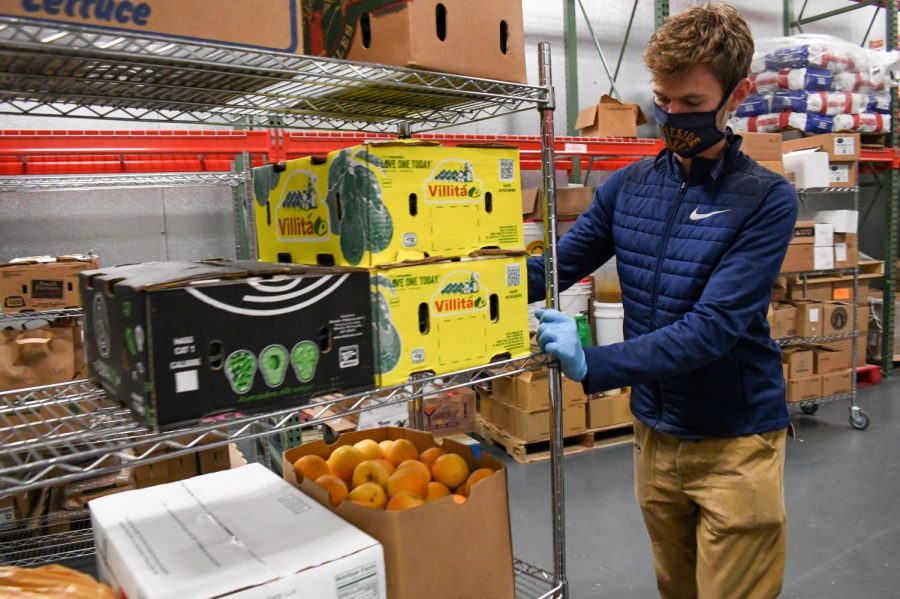A University of Minnesota student group dedicated to eliminating food insecurity is adding new services to continue to provide affordable produce to Twin Cities neighborhoods during the pandemic.
To accommodate a growing need, the University chapter of BrightSide Produce began offering home deliveries of fresh fruits and vegetables on a pay-what-you-can basis to make food more accessible to families in need.
The group began in 2014 as a collaboration between the University of St. Thomas and Community Table Co-op.It came to the University of Minnesota last year to expand a program called the Buyers Club, a weekly subscription service for students, staff and faculty to pick up fresh produce at low costs on campus. When the pandemic hit, the Buyers Club had to close.
Since then, BrightSide Produce transitioned its model to home deliveries, which includes dropping the food off at doorsteps and texting when the delivery is done. They have not missed a single delivery since the pandemic.
“We’re doing more than we’ve ever had, and we’re getting an influx of new customers every day,” said Adam Kay, co-founder and executive director of BrightSide Produce.
Brightside Produce, which also offers produce to corner stores, was left with an excess of food when partner stores temporarily closed due to damages resulting from the riots following the killing of George Floyd.
“It was really important to us [that] we went out [into North and South Minneapolis] because as these stores are being damaged, people still need groceries, right? They live there,” said Daina Strub, the operations director at UMN BrightSide Produce. “If there was ever a time when our services were even more important than they were every day … it was then.”
To cover the costs of the excess food, BrightSide Produce began to fundraise and was able to raise around $10,000 to set up tents in the Twin Cities area to give away bags of produce for families. However, student leaders and volunteers quickly realized the food was not getting to families who were unable to travel to pick it up.
In response, BrightSide Produce launched the home delivery service. Since then, the group was able to deliver produce bundles to 65 families for eight weeks. When money from the fundraiser decreased, the transition from free home deliveries to the pay-what-you-can model allowed BrightSide Produce to continue to deliver produce with support from donors.
“People don’t want to take charity all the time. They really like to have some ownership in what they’re doing for themselves. And I think that [the pay-what-you-can] program, even if it’s just $3, really just gives people some of their power back. They’re really doing it for themselves,” Strub said.
BrightSide Produce is student-driven and continues to look for more student volunteers. Meredith Song and Ayah Suliman, co-presidents of the UMN BrightSide Produce, said they are striving to expand the program in the future.
“I want to see BrightSide Produce on a bigger scale,” Suliman said. “The more people know about it, the more people we can get [to] sign up, and the more opportunity that gives us to service the community and corner stores.”
The group is driven by students, like Suliman and Song, who are passionate about ending food insecurity and offering new models to reinforce giving families equitable access to healthy food.
“What isn’t talked about enough, I don’t think, is food equity, and making it so that, yes maybe you need a meal today, but let’s make it so you can afford to buy an apple in your neighborhood tomorrow,” Strub said. “I feel like not enough programs are looking at changing the system to get rid of those injustices that are creating the problem in the first place, and I think BrightSide really does that.”
Srilekha Garishakurti contributed to this report.



















